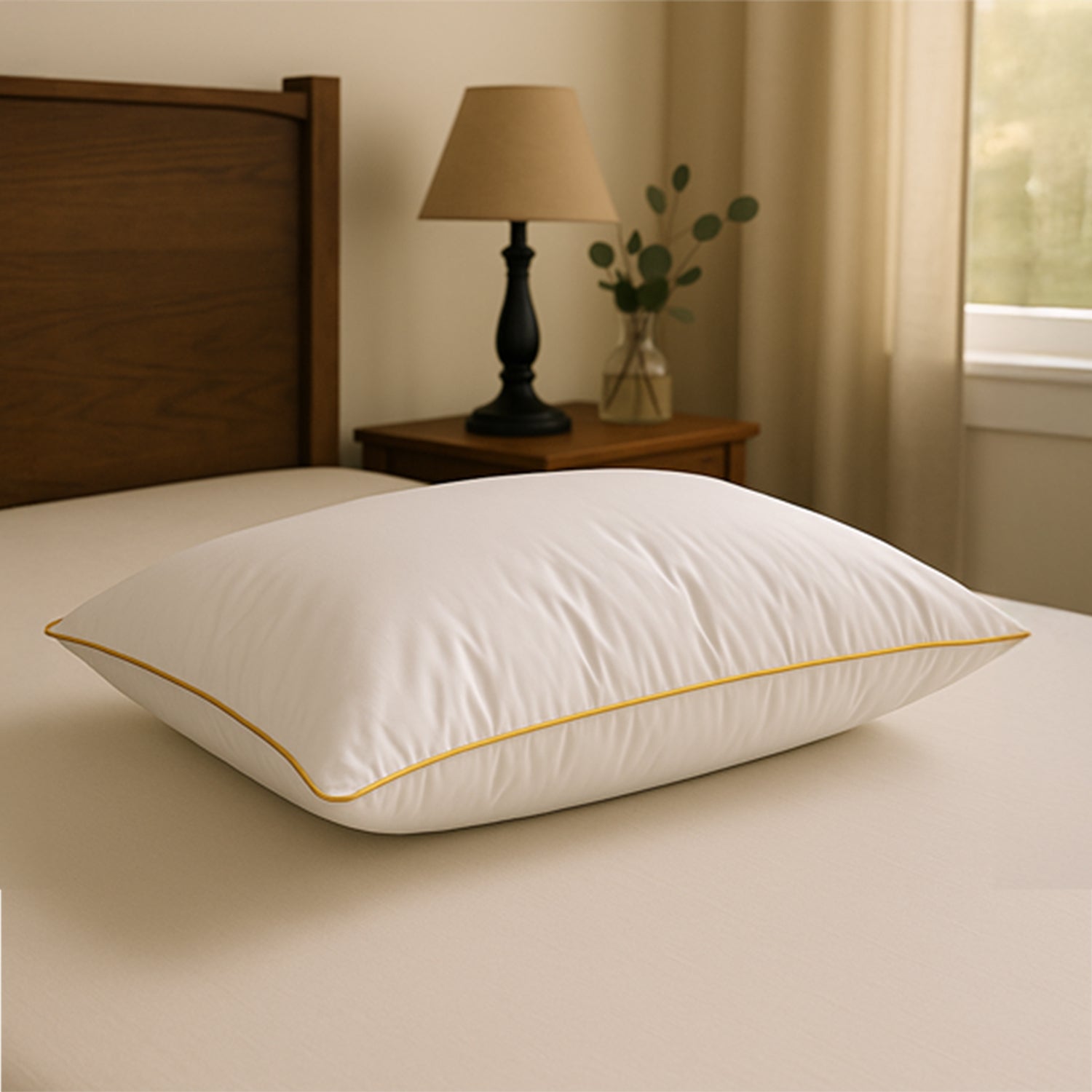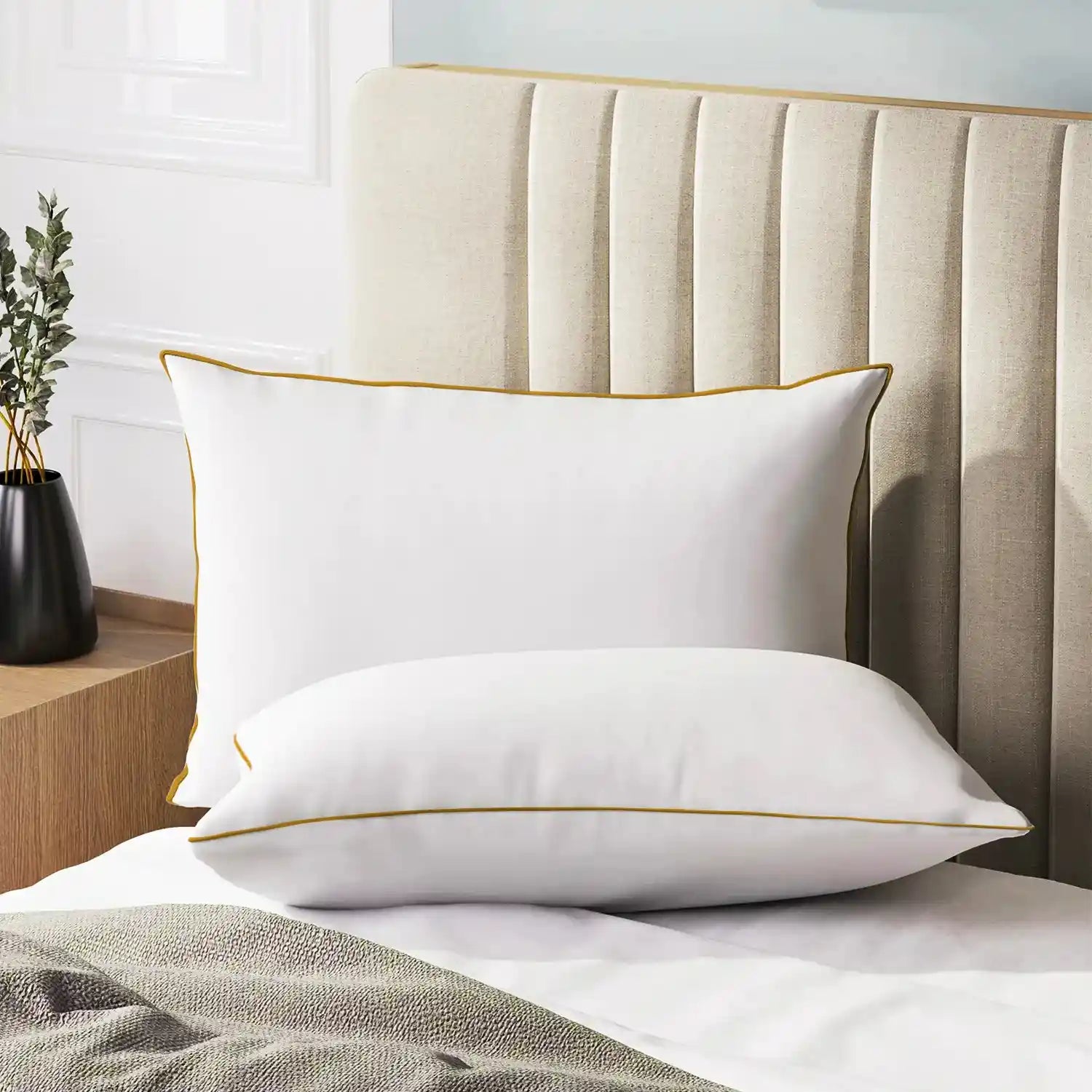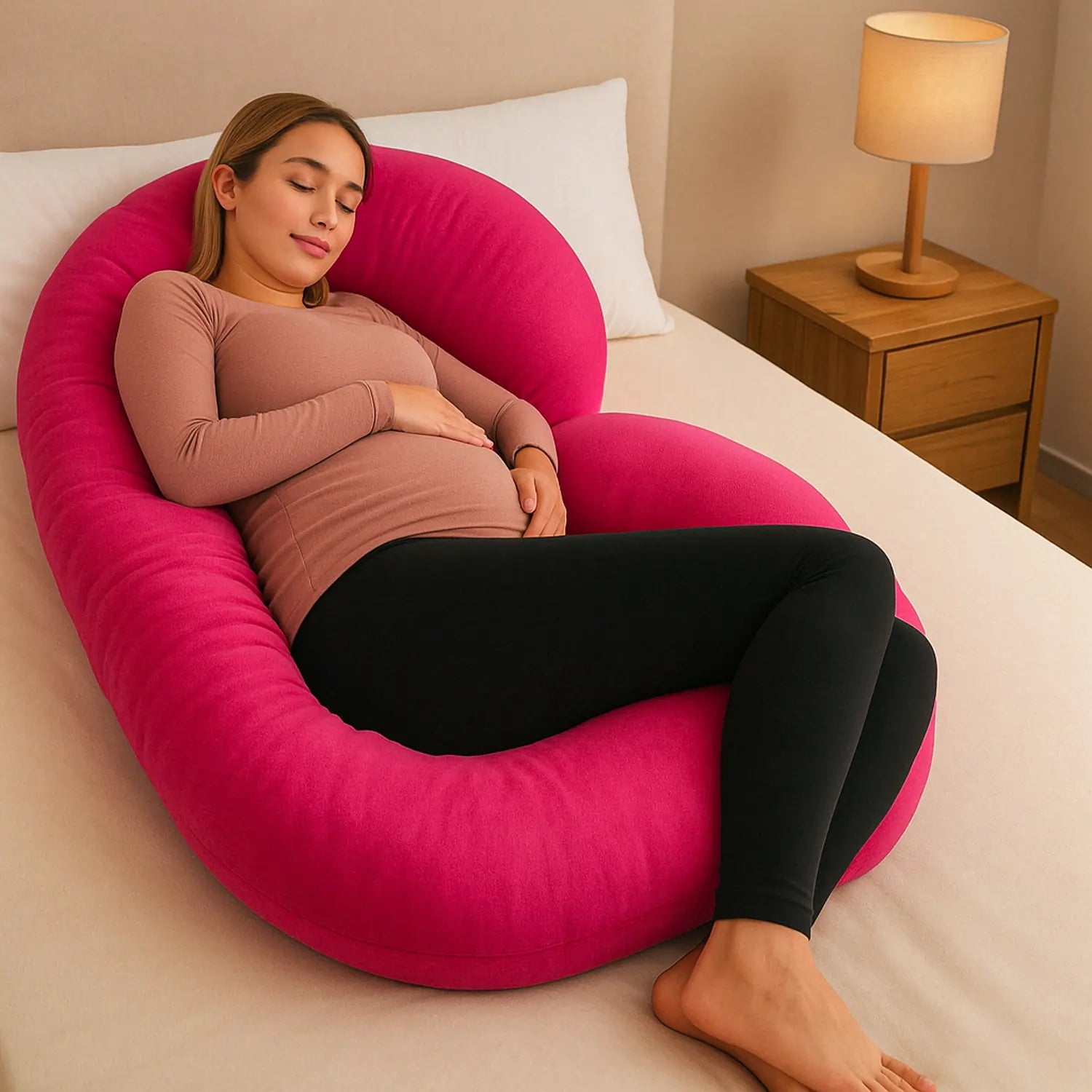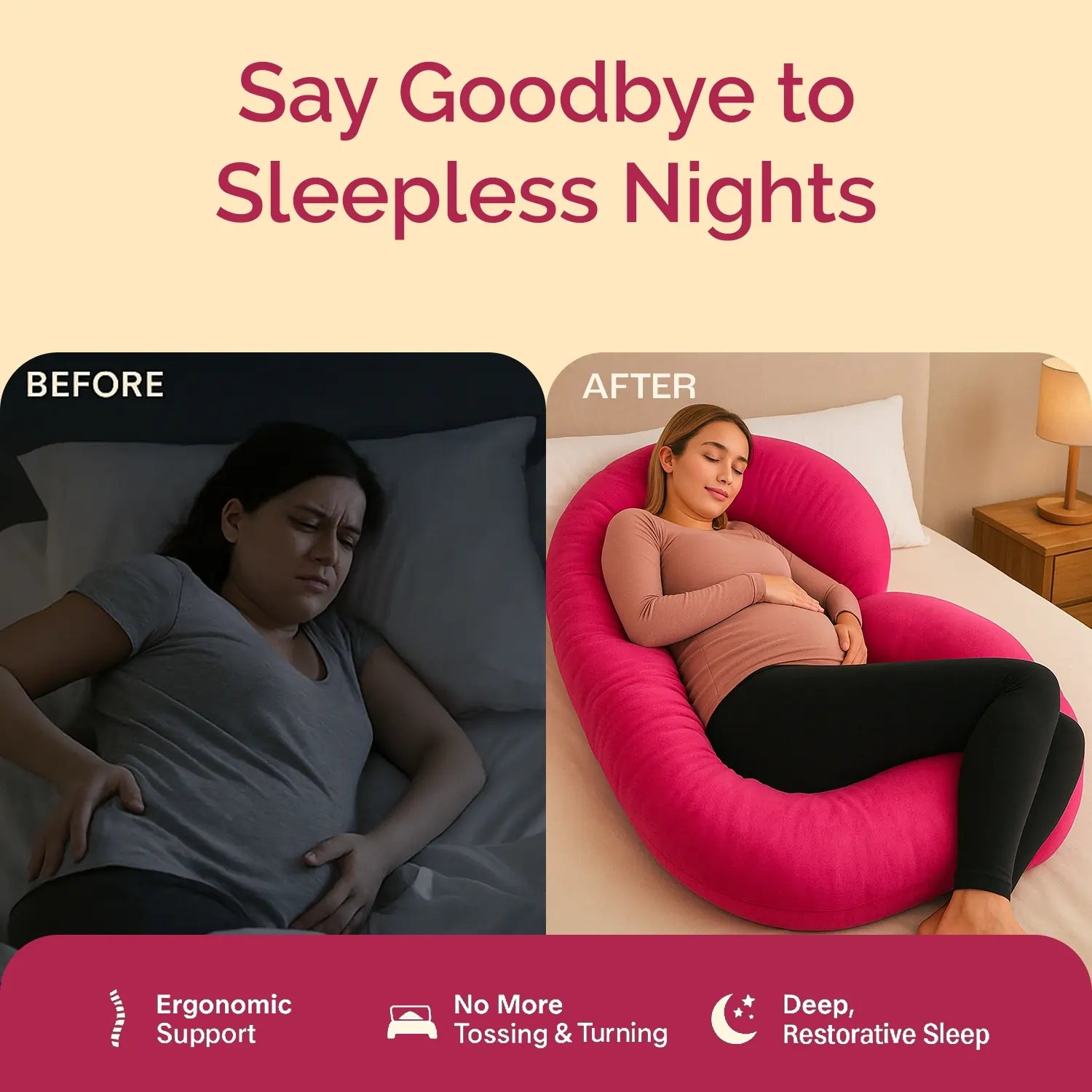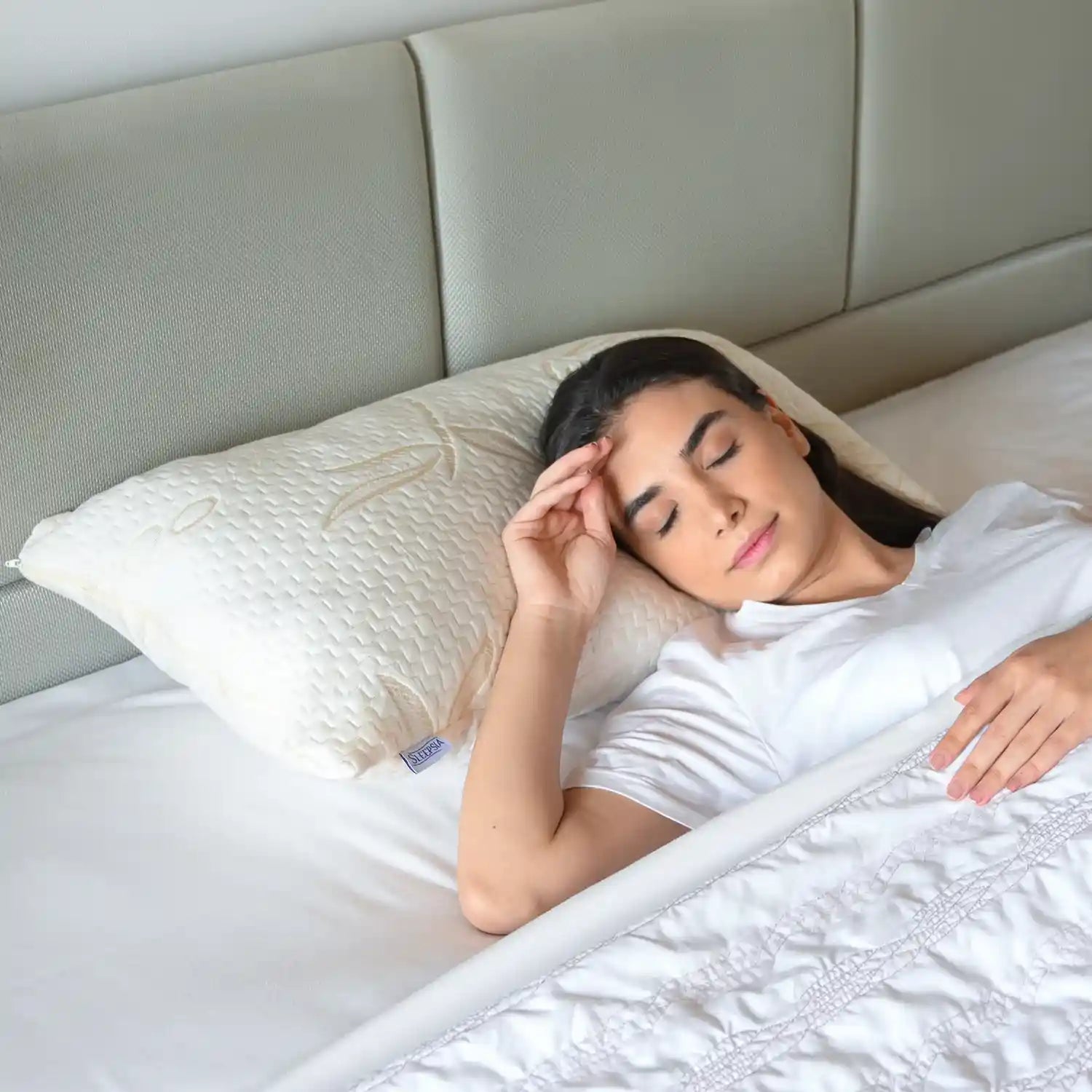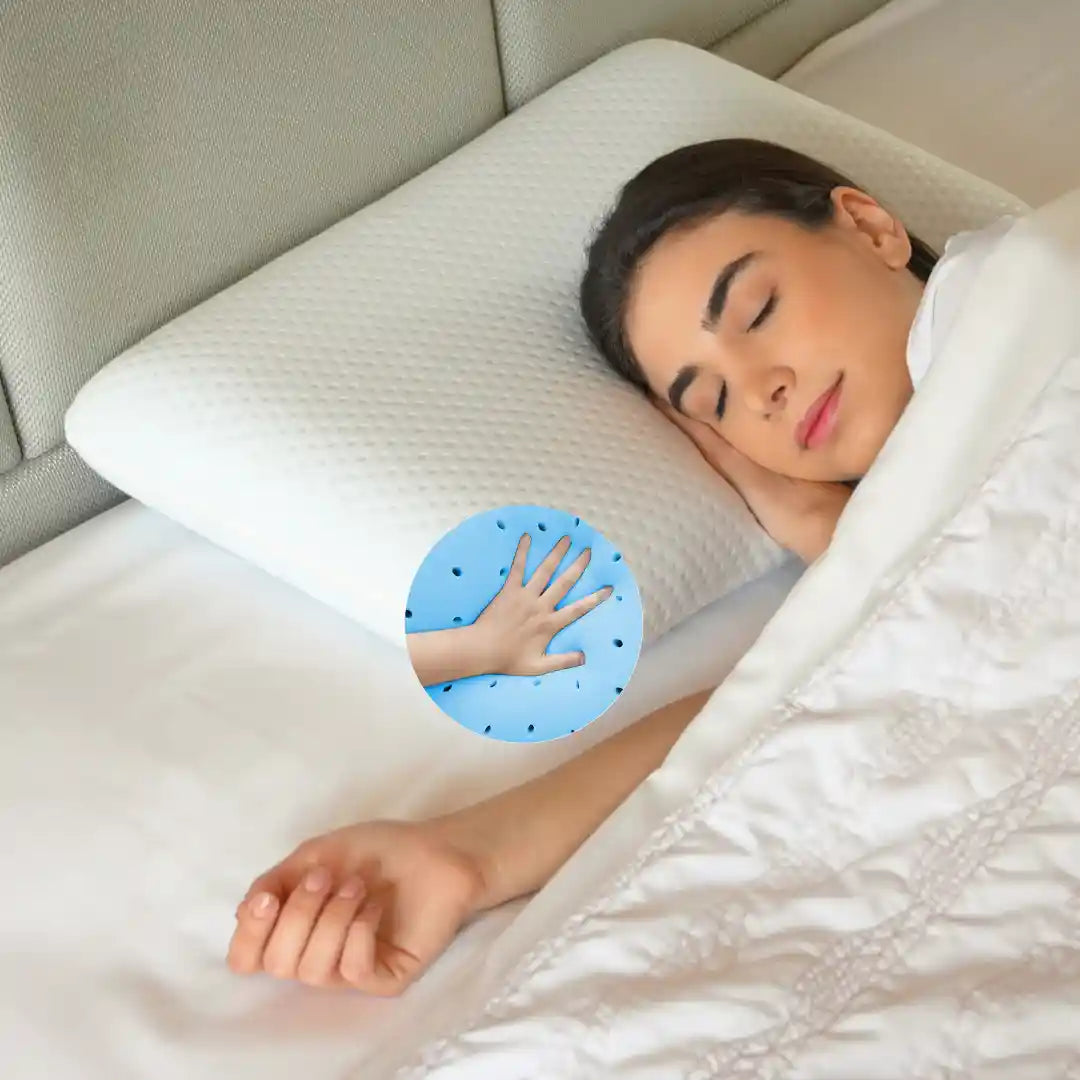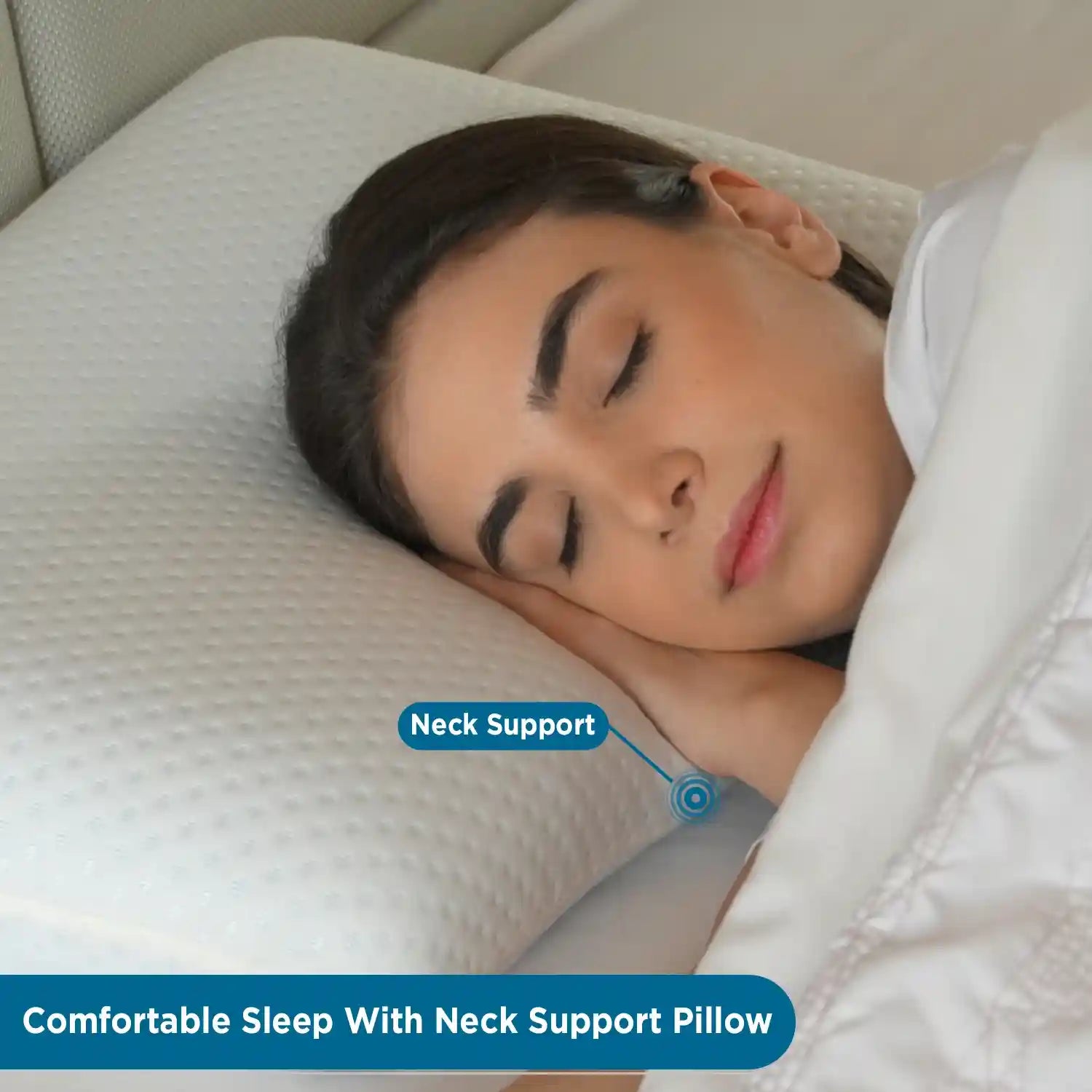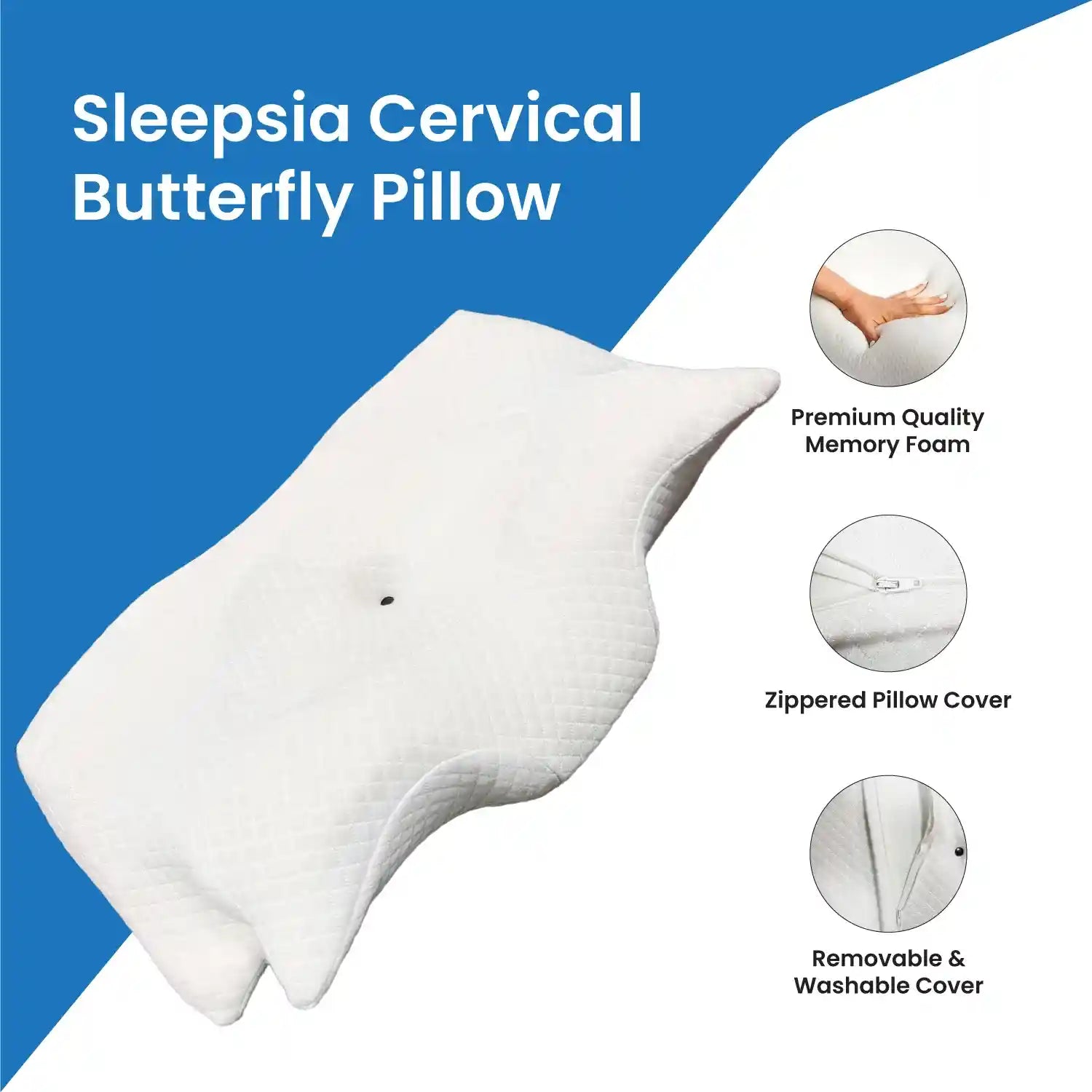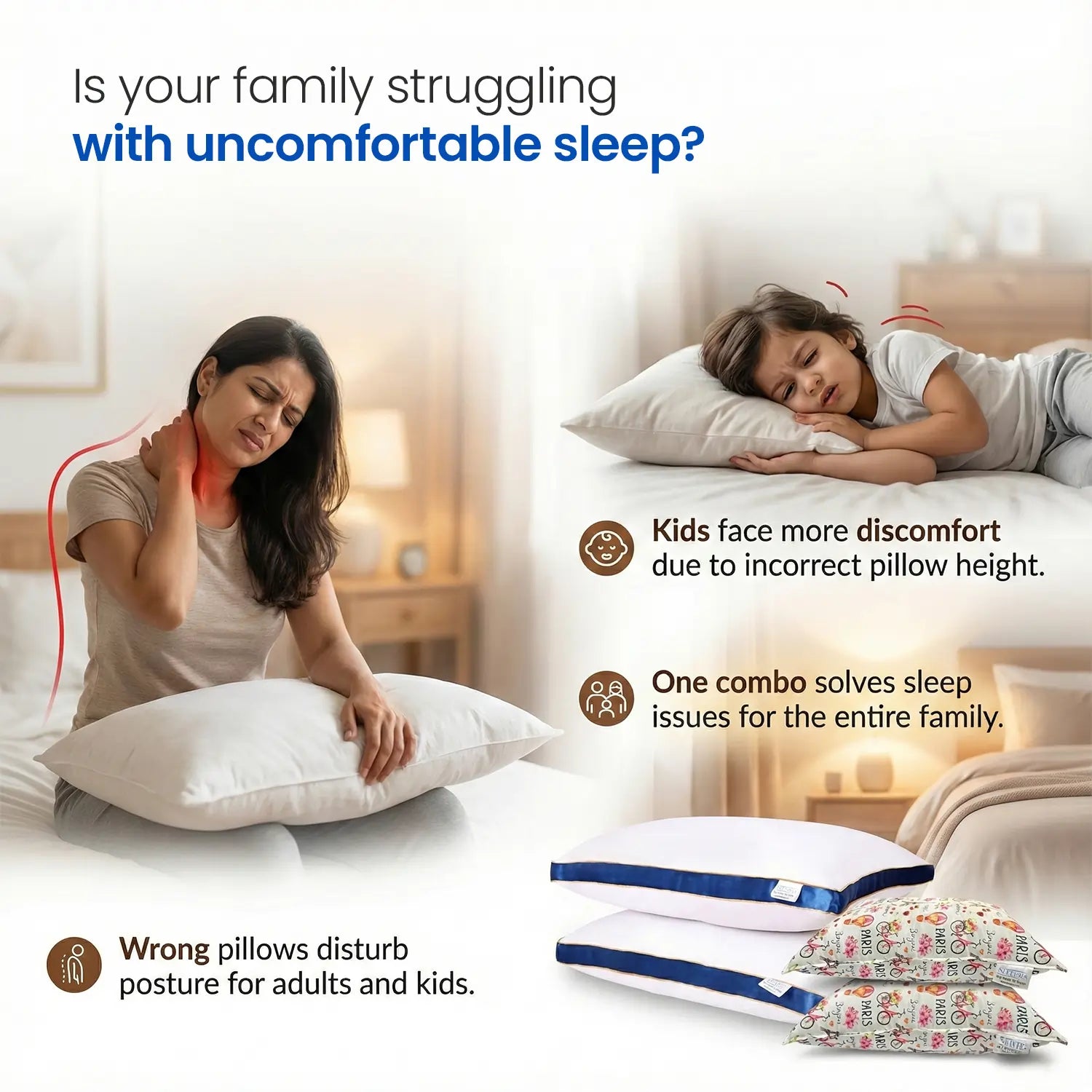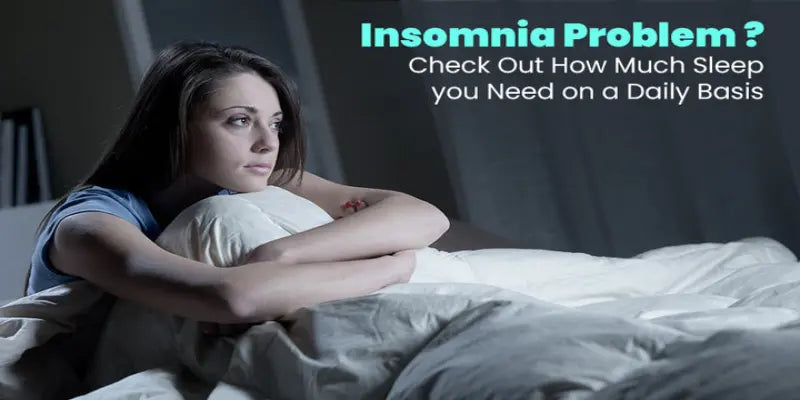
Insomnia Problem? Check out How much Sleep You Need on a Daily Basis
If you're like most people, you probably don't get enough sleep on a daily basis. And if you do sleep well on occasion, it's likely because of a rare event or because you're able to fall asleep quickly. But for the majority of people, getting quality sleep is a challenge. That's why we've put together this list of tips to help you sleep better and prevent insomnia.
Recommended Products
How Much Sleep Do We Need?

People need different amounts of sleep depending on their age, activity level and sleep habits. The National Sleep Foundation says that adults aged 18 to 25 need between 7-9 hours of sleep a day, people 26 to 44 need 8-10 hours and those 45 to 64 should get 7-8 hours. People who work regular night shifts or have demanding jobs need even more sleep than the average person – on average, 10-11 hours a night.
The Different Types of Sleep
There are basically three types of sleep: REM, NREM, and SWS. REM sleep is the most active type of sleep and is when you dream. NREM sleep follows and is more calm and refreshing. SWS is the slowest type of sleep, and it’s when you’re mostly quiet and relaxed.Most people need around seven to eight hours of sleep a night. However, there’s some variation depending on things like age, sex, activity level, and stress levels. Hence it is important to find out what works best for you.
If you struggle to get enough sleep, there are a few things you can do to help improve your situation. First, make sure your bedroom is dark and quiet during bedtime so that you can relax and fall asleep quickly. Second, try to schedule regular naps in between daytime hours so that you aren’t constantly tired throughout the day. And finally, avoid caffeine late in the afternoon or early evening – it can keep you awake for longer periods of time than usual.
What is Insomnia?

A person with insomnia has trouble falling asleep or staying asleep. It can be a temporary problem, lasting for weeks or months, or it can be a long-term condition that lasts for years. Insomnia is usually caused by problems with sleep timing (falling asleep and staying asleep), as well as problems with sleep quality (insufficient sleep).
There are several ways to treat insomnia. Some people use medications to help them fall asleep or stay asleep. Others use relaxation techniques or behavioral therapy to help them improve their sleep habits. Some people treat their insomnia with partial sleep deprivation (sleeping only part of the night). This allows them to learn how to fall asleep and stay asleep on their own without using medications or relaxation techniques.
Causes of Insomnia
Insomnia is a problem that many people experience. It can be caused by a number of different things, and it can be difficult to figure out what is causing it. The causes of insomnia vary from person to person, and everyone experiences it differently. Hence these are some of the most common reasons:
- Sleep deprivation: If you don't get enough sleep, your body will start to shut down. This can cause all sorts of problems, including insomnia.
- Anxiety: People who are anxious often have trouble sleeping because their brains are constantly going crazy in their sleep! This can cause insomnia symptoms, like trouble falling asleep or staying asleep.
- Depression: Insomnia is often associated with depression, and this is because both conditions involve problems getting quality sleep. Depression can also lead to Difficulty concentrating during the day, which makes it even harder to fall asleep at night.
- Stressful life events: Many times, when something stressful happens in someone's life, they start having trouble sleeping as well. This is because stress keeps your brain busy at night, preventing you from going to bed at a normal time and getting enough rest.
Ways To Achieve A Restful Sleep?
Insomnia can be a very frustrating problem to deal with. Not getting enough sleep can lead to fatigue, mood swings, and problems with concentration. However, there are some basic steps you can take to improve your sleep quality. First and foremost, make sure you are getting at least seven hours of sleep each night. This is the minimum requirement for good health and well-being. If you're struggling to get adequate sleep, try adjusting some of your sleeping habits.
For example, avoid caffeine in the afternoon or evening, watch TV in bed instead of before bedtime, and limit noise exposure in the bedroom. If you find that even trying to adjust your sleeping habits isn't working, consider talking to your doctor about other treatment options. There are many different treatments available that can help people improve their sleep quality.
What To Do If You Can't Sleep?

If you're experiencing insomnia, it's important to know how much sleep you need on a daily basis. Adults need between 7 and 9 hours of sleep per night, as per the National Sleep Foundation. If you're feeling exhausted during the day and can't get to sleep at night, it might be time to investigate your sleeping habits more Closely. Here are some tips for getting a better nights' sleep:
- Keep a regular sleep schedule: Going to bed and waking up at the same time every day can help your body get used to sleeping at night. This can help you get a good night's sleep more easily.
- Avoid caffeine before bed: Caffeine can keep you awake later in the night, which can lead to trouble falling asleep. If you need caffeine to stay awake during the day, try drinking it in smaller doses before bedtime.
- Establish a relaxation routine: Taking some time each evening to relax your body and mind can help you fall asleep easier. Try practicing yoga or meditation before bed, or reading a calming book before turning off the light.
- Avoid noise and light in the bedroom: Noise and light in the bedroom can keep you from falling asleep, so try to keep these things out of your room if possible. If needed, use earplugs or closed-eye glasses to block out noise or light when necessary.
How a Pillow Can Help in Insomnia?
Insomnia is a problem with getting to sleep or staying asleep. It can be caused by problems like anxiety, stress, anxiety disorders, and depression. Sleep difficulties can also stem from medical conditions like sleep apnea or restless leg syndrome. There are numerous ways to assist fix insomnia. Some people try prescription medications like zolpidem (Ambien), alprazolam (Xanax), and lorazepam (Ativan). Other people use over the counter medications like melatonin or chamomile tea before bed. Some people use relaxation techniques like meditation or hypnosis. And lastly, some people use pillows to help them get a good night’s sleep.
There are multiple varieties of pillows available in the market today. They come in all shapes and sizes, so it’s important to find one that is specifically designed for you and your sleep habits. One popular type of pillow is the side sleeper pillow. This type of pillow is designed to support your head and neck while you are sleeping on your side. Side sleeper pillows can be rotated so that they support your head in any position you want it to be in during the night.
This can help you get a goodnight’s sleep no matter which position you end up sleeping in most nights. If using a side sleeper pillow isn’t working for you, there are other types of pillows that can help too. A neck pillow can be an amazing choice to assist you in getting a good night’s sleep. A neck pillow is designed to support your head and neck while you are sleeping. It’s important to find a neck pillow that is comfortable for you. Firmer pillows are preferred by some people, while softer pillows are preferred by others.
If using a neck pillow isn’t working for you, there are other types of pillows that can help too. A body pillow can be another great way to help you get a good night’s sleep. A body pillow is designed to support your entire body while you are sleeping. It’s necessary to look for a body pillow that is comfortable for you. There are some people who prefer softer pillows, and there are others who prefer firmer pillows.
If using a body pillow isn’t working for you, there are other types of pillows that can help too. A cervical pillow can be another great way to help you get a good night’s sleep. A cervical pillow is designed to support your neck and head when you are sleeping. It’s important to find a cervical pillow that is comfortable for you. There are some people who prefer softer pillows, and there are others who prefer firmer pillows.
Conclusion
There are a few things you can do if you're having trouble getting enough sleep. Checking out how much sleep you need on a daily basis can be the first step in finding an effective solution. Depending on what kind of insomniac you are, different methods might work better for you than others. If you still find that getting adequate sleep is difficult, speak to your doctor about any potential treatments or medications they may have available to help. Thank you for reading!




